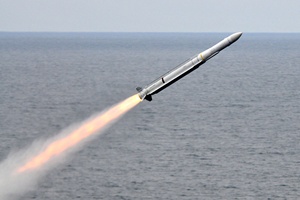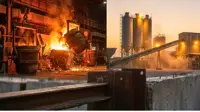Western powers should now shift focus to Pak: NYT
07 Apr 2015
Describing nuclear-armed Pakistan as "unquestionably the biggest concern" to stability in South Asia, a leading US daily today said the world powers that worked on the Iran deal should now turn their attention to the sub-continental region.

"The world's attention has rightly been riveted on negotiations aimed at curbing Iran's nuclear programme. If and when that deal is made final, America and the other major powers that worked on it China, Russia, Britain, France and Germany should turn their attention to South Asia, a troubled region with growing nuclear risks of its own," The New York Times said in an editorial.
The editorial titled Nuclear Fears in South Asia said the situation in the region cannot be ignored by the major world powers, no matter how preoccupied they may be by the long negotiations with Iran, as India, China and Pakistan are moving ahead with plans to deploy nuclear weapons in the Indian Ocean.
The editorial said Pakistan is "hardly alone in its potential to cause regional instability," with China continuing to build up its nuclear arsenal, now estimated at 250 weapons.
Calling Pakistan as "unquestionably the biggest concern" in the region, the editorial said continuous investments by the country in military arsenal capable of carrying nuclear warheads "reflect the Pakistani Army's continuing obsession with India as the enemy, a rationale that allows the generals to maintain maximum power over the government and demand maximum national resources.
"At the same time, Pakistan has sunk deeper into chaos, threatened by economic collapse, the weakening of political institutions and, most of all, a Taliban insurgency that aims to bring down the state," it said.
On India's part, which has a nuclear arsenal of 110 weapons compared to Pakistan's 120, Prime Minister Narendra Modi has made it clear that Islamabad can expect retaliation if Islamic militants carry out a terrorist attack in India, as happened with the 2008 attack in Mumbai, the editorial said.
The two countries have a "troubled history" and deep animosities persist, it said adding that since the last major conflict in 1999, India has focused on becoming a regional economic and political power.
The editorial said that "even more troubling" is the fact that the Pakistani Army has become increasingly dependent on the nuclear arsenal because Pakistan cannot match the size and sophistication of India's conventional forces.
"Pakistan has left open the possibility that it could be the first to use nuclear weapons in a confrontation, even one that began with conventional arms. Adding short-range tactical nuclear weapons that can hit their targets quickly compounds the danger," the editorial said.
It added that billions of dollars have been "wasted" by Pakistan on acquiring sophisticated defence systems that otherwise should have been spent on health, education and jobs for its people.






















